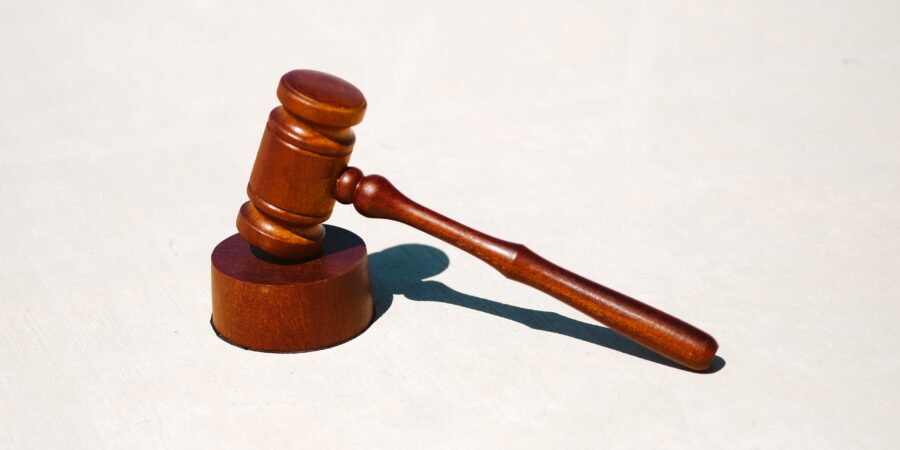FACTS:
On 25 July 1996, NBI Agent Dominador Samiano, Jr. filed several applications for search warrants in the RTC against Maxicorp for alleged copyright infringement under Section 29 of PD 49 and unfair competition under Article 189 of the RPC. To support these charges, petitioners presented the testimonies of NBI Agent Samiano, computer technician Pante, and Sacriz, a civilian.
During the preliminary examination, the RTC subjected the testimonies of the witnesses to the requisite examination. NBI Agent Samiano testified that he saw Maxicorp display and offer for sale counterfeit software in its premises. He also saw how the counterfeit software were produced and packaged within Maxicorp’s premises. NBI Agent Samiano categorically stated that he was certain the products were counterfeit because Maxicorp sold them to its customers without giving the accompanying ownership manuals, license agreements and certificates of authenticity.
After conducting a preliminary examination of the applicant and his witnesses, the RTC found probable cause to issue the search warrants. Judge William M. Bayhon issued Search Warrants Nos. 96-451, 96-452, 96-453 and 96-454, all dated 25 July 1996, against Maxicorp.
Armed with the search warrants, NBI agents conducted a search of Maxicorp’s premises and seized property fitting the description stated in the search warrants.
Maxicorp filed a motion to quash the search warrants alleging that there was no probable cause for their issuance and that the warrants are in the form of “general warrants.” The RTC denied Maxicorp’s the same.
The RTC also denied Maxicorp’s motion for reconsideration.
Maxicorp filed a petition for certiorari with the CA seeking to set aside the RTC’s order.
The CA reversed the RTC’s order denying Maxicorp’s motion to quash the search warrants. Petitioners moved for reconsideration.
The CA denied petitioners’ motion.
The CA held that NBI Agent Samiano failed to present during the preliminary examination conclusive evidence that Maxicorp produced or sold the counterfeit products. The CA pointed out that the sales receipt NBI Agent Samiano presented as evidence that he bought the products from Maxicorp was in the name of a certain “Joel Diaz.”
Hence, this petition.
ISSUE:
Whether or not there was Probable Cause to Issue the Search Warrants.
RULING:
We rule that the Court of Appeals erred in reversing the RTC’s findings.
Probable cause means “such reasons, supported by facts and circumstances as will warrant a cautious man in the belief that his action and the means taken in prosecuting it are legally just and proper.” Thus, probable cause for a search warrant requires such facts and circumstances that would lead a reasonably prudent man to believe that an offense has been committed and the objects sought in connection with that offense are in the place to be searched.
The judge determining probable cause must do so only after personally examining under oath the complainant and his witnesses. The oath required must refer to “the truth of the facts within the personal knowledge of the petitioner or his witnesses, because the purpose thereof is to convince the committing magistrate, not the individual making the affidavit and seeking the issuance of the warrant, of the existence of probable cause.” The applicant must have personal knowledge of the circumstances. “Reliable information” is insufficient. Mere affidavits are not enough, and the judge must depose in writing the complainant and his witnesses.
The CA’s reversal of the findings of the RTC centers on the fact that the two witnesses for petitioners during the preliminary examination failed to prove conclusively that they bought counterfeit software from Maxicorp.
The testimonies of these two witnesses, coupled with the object and documentary evidence they presented, are sufficient to establish the existence of probable cause. From what they have witnessed, there is reason to believe that Maxicorp engaged in copyright infringement and unfair competition to the prejudice of petitioners. Both NBI Agent Samiano and Sacriz were clear and insistent that the counterfeit software were not only displayed and sold within Maxicorp’s premises, they were also produced, packaged and in some cases, installed there.
The determination of probable cause does not call for the application of rules and standards of proof that a judgment of conviction requires after trial on the merits. As implied by the words themselves, “probable cause” is concerned with probability, not absolute or even moral certainty. The prosecution need not present at this stage proof beyond reasonable doubt. The standards of judgment are those of a reasonably prudent man, not the exacting calibrations of a judge after a full-blown trial.
No law or rule states that probable cause requires a specific kind of evidence. No formula or fixed rule for its determination exists. Probable cause is determined in the light of conditions obtaining in a given situation.
